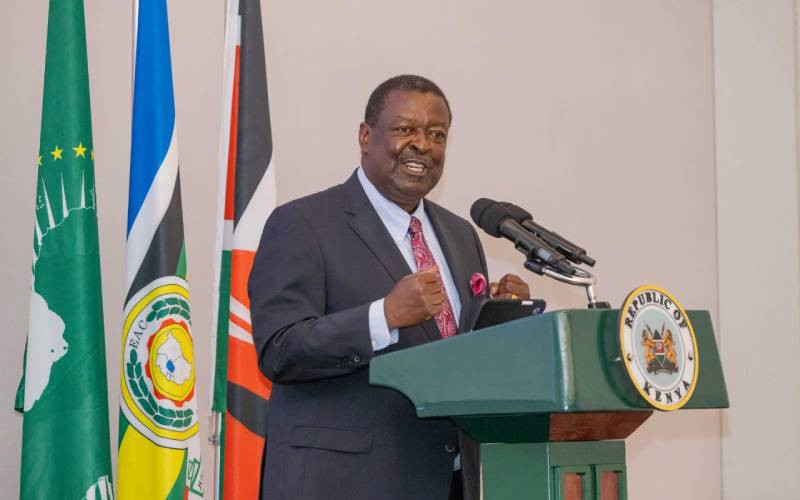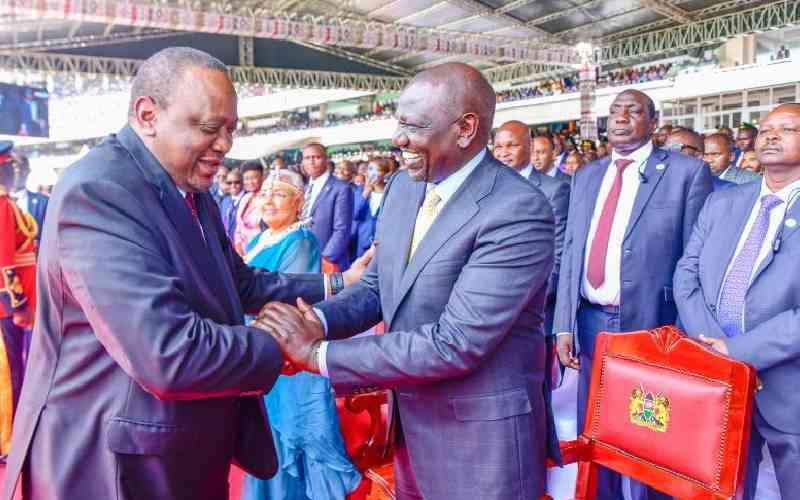African countries are now pushing for at least four slots in the United Nations Security Council (UNSC), two in the permanent member category.
The countries, through a working group of the African Union (AU) called C-10, want the UNSC expanded to have the two slots for Africa and others to regions such as Asia, Arab League, Latin America and the Pacific region.
They want a big say in the UN top decision-making organ, saying they want nothing less than veto powers. Currently, the UNSC permanent member states with veto powers are China, Russia, US, France and the United Kingdom.
Africa has three representatives in the 10 non-permanent members states - Chad, Rwanda and Nigeria.
Foreign ministers from the C-10 countries were meeting in Nairobi yesterday to fine-tune an agreement that, once adopted, will form the basis of a resolution to be tabled before the AU. It will then be used to lobby other regions from the UN working groups ahead of next year's 69th United Nations General Assembly.
While opening the forum, President Uhuru Kenyatta tore into the current composition of the UNSC, saying it must be reformed to make Africa's voice heard in the global body.
The President said the council - the principal organ responsible for maintaining international peace and security - best exemplifies a structure that is not compatible with the current realities of the world.
"It does not reflect the current world power distribution and geopolitical situation. The council's small size and exclusive nature, its relations with the General Assembly, its working methods and undemocratic nature have become out of step with today's demands," the President said.
Cabinet Secretary Amina Mohamed said the African Union Committee on UNSC reforms will continue its efforts by engaging other regions of the world on the matter.
"We are saying Africa should get at least two slots in the permanent member states," she said. She expressed optimism that the committee's efforts would create sufficient momentum for change in the council.
The Committee of Ten (C-10) comprises Sierra Leone (chair), Algeria, Congo Brazzaville, Equatorial Guinea, Kenya, Libya, Namibia, Senegal, Uganda and Zambia. C-10 is spearheading Africa's desire for reforms in the council and its expansion from 15 to 26 seats that will include two permanent and two new non-permanent seats for Africa.
The African Common Position, also known as Ezulwini Consensus, proposes that all members in the permanent category should have veto power.
 The Standard Group Plc is a
multi-media organization with investments in media platforms spanning newspaper
print operations, television, radio broadcasting, digital and online services. The
Standard Group is recognized as a leading multi-media house in Kenya with a key
influence in matters of national and international interest.
The Standard Group Plc is a
multi-media organization with investments in media platforms spanning newspaper
print operations, television, radio broadcasting, digital and online services. The
Standard Group is recognized as a leading multi-media house in Kenya with a key
influence in matters of national and international interest.
 The Standard Group Plc is a
multi-media organization with investments in media platforms spanning newspaper
print operations, television, radio broadcasting, digital and online services. The
Standard Group is recognized as a leading multi-media house in Kenya with a key
influence in matters of national and international interest.
The Standard Group Plc is a
multi-media organization with investments in media platforms spanning newspaper
print operations, television, radio broadcasting, digital and online services. The
Standard Group is recognized as a leading multi-media house in Kenya with a key
influence in matters of national and international interest.








